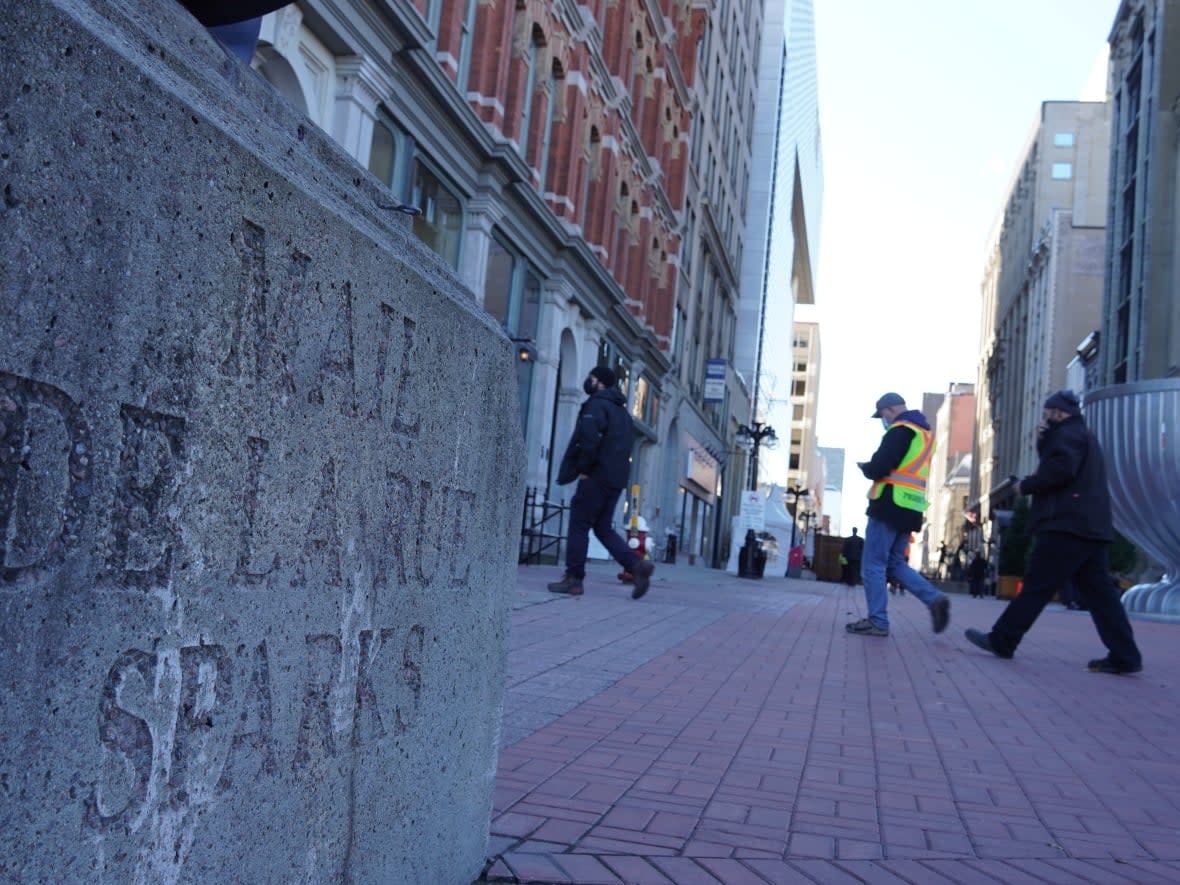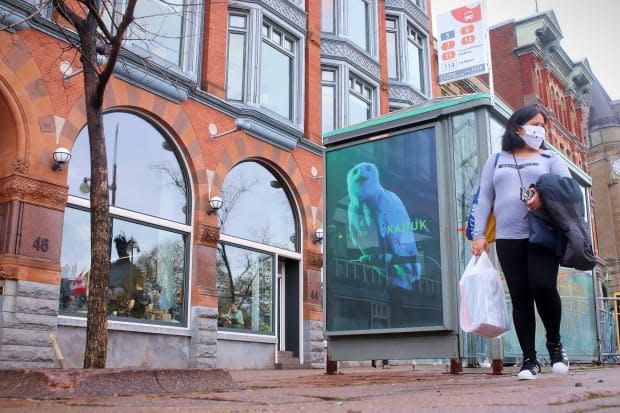What you need to know about COVID-19 in Ottawa on Monday, Nov. 29

Recent developments:
Ottawa reported 26 cases of COVID-19 Monday.
The city also has Canada's first two confirmed cases of the omicron variant.
Ottawa Senators coach Jack Capuano went to hospital due to COVID-19.
What's the latest?
Ottawa Public Health (OPH) reported 26 more COVID-19 cases on Monday.
There are two confirmed cases of the omicron variant, first detected in South Africa, in Ottawa. The variant of concern was reported in individuals who had recently travelled from Nigeria and both patients are isolating, according to the province's statement Sunday.
During a news conference Monday, Ontario's Chief Medical Officer of Health Dr. Kieran Moore said the province has the infrastructure in place to manage any potential outbreak of a newly discovered COVID-19 variant of concern, and is reviewing its strategy for giving people their third dose of a COVID-19 vaccine.
He added the province is investigating other cases and he wouldn't be surprised to find more omicron variant cases in Ontario.
WATCH | Omicron prompts travel restrictions:
Working from home throughout the pandemic has provided employees who are Black, Indigenous and people of colour a mental break from dealing with microaggressions in the workplace. With many employers now beginning to consider the return to work in person, that feeling of safety is threatened.
Ottawa Senators associate coach Jack Capuano — along with 10 of the team's players, all immunized as well — tested positive for the coronavirus. Capuano was by far the sickest, and at one point ended up in a hospital emergency room.
Public health officials are asking anyone who attended a wedding reception at the Italo-Canadian Club in Kingston, Ont., on Nov. 20 between 6:30 and 11:30 p.m., to get tested immediately for COVID-19. Anyone who is unvaccinated and was at the reception must isolate until Wednesday.
How many cases are there?
As of Monday, Ottawa has had 31,969 confirmed cases of COVID-19. There are 347 known active cases, while 31,004 cases are considered resolved and 618 people have died from the illness.
Ottawa-Gatineau area confirmed COVID-19 cases
Public health officials have reported more than 59,600 COVID-19 cases across eastern Ontario and western Quebec, including more than 57,500 cases now resolved. Elsewhere in eastern Ontario, 230 people with COVID-19 have died. In western Quebec, the death toll is 223.
Akwesasne has had more than 1,100 residents test positive for COVID-19 and has reported 14 deaths between its northern and southern sections.
Kitigan Zibi Anishinabeg has had 34 cases and one death. Tyendinaga Mohawk Territory has had 24 cases and one death. Pikwakanagan hasn't had any cases.
CBC Ottawa is profiling those who've died of COVID-19. If you'd like to share your loved one's story, please get in touch.
What are the rules?
Eastern Ontario:
There are no capacity restrictions for most places that require proof of vaccination, nor for outdoor organized events.
The plan is to lift public health measures in stages until March 2022, with the next step paused until at least mid-December as officials monitor some rising trends.
Private gathering limits are 25 people inside and 100 people outside.
Health units can change rules — Renfrew County has done that for isolation and the Kingston area for indoor gatherings, school symptoms and indoor sports.
The province's vaccine passport is required for people age 12 and up in many public places. It won't be required for younger kids now that they're eligible for a dose. People can show paper, PDF or QR code proof.
Western Quebec
Ten people are allowed to gather inside private residences and 20 people outdoors — which increases to 50 if playing sports. There are no capacity limits for Quebec venues with assigned seats and restaurants.
Quebec Premier François Legault says the more people respect current gathering rules, the more likely it is they can be loosened for the holidays.
A vaccine passport is in place for most people age 13 and up in many public spaces. People can use an app or show paper proof. It won't apply to younger kids.
Other groups in the region are also coming out with their own COVID-19 vaccine policies, including for staff and visitors.
What can I do?
Prevention
COVID-19 primarily spreads through droplets that can hang in the air. People can be contagious without symptoms, even after getting a vaccine.
This means it is important to take precautions such as staying home while sick — and getting help with costs if needed — keeping hands and surfaces clean and considering distancing from anyone you don't live with.
Masks, preferably medical or surgical ones, are mandatory in indoor public settings in Ontario and Quebec and recommended in crowded outdoor areas.

When and how long to self-isolate can vary in Quebec and Ontario and by vaccination status.
Health Canada recommends older adults and people with underlying medical conditions get help with errands and have supplies in case they need to isolate.
Travel
Travellers must now be vaccinated to board a plane, train or marine vessel in Canada. Today is the last day partially vaccinated travellers can show proof of a valid COVID-19 molecular test. As of Tuesday, the unvaccinated will not be eligible to travel, except for limited exemptions.
WATCH |Omicron variant detected in Canada, says Ontario government
People have to be fully vaccinated, tested and pre-approved to enter Canada. Rules for trips under 72 hours change on Tuesday and the list of approved vaccines has expanded. Rules for younger kids also change now that they're eligible for a vaccine.
The U.S. requires all travellers — land, air and water — to be fully vaccinated. Some people with mixed doses will be allowed and it won't require a recent test.
The prime minister said in late October he's "very confident" countries around the world will accept provincial or territorial proof of vaccination.
Vaccines
Vaccines curb the spread of all variants of COVID-19 and go a long way toward avoiding deaths and hospitalizations, without offering total protection. Four COVID-19 vaccines have been deemed safe and approved in Canada.
Health Canada has approved Pfizer-BioNTech's vaccine for children as young as five. Doses for kids age five to 11 will be given at least eight weeks apart in both local provinces.
It's possible even younger children could have an approved vaccine early in 2022, according to Canada's chief public health officer.
Ontario and Quebec are giving certain groups third doses.
There have been more than 3.6 million COVID-19 first, second and third vaccine doses administered in the wider Ottawa-Gatineau region, which has about 2.3 million residents.
Eastern Ontario
Ontario is vaccinating anyone born in 2016 and earlier.
People can look for provincial appointments online or over the phone at 1-833-943-3900.
Local health units have some flexibility, so check their websites for details. They offer doses on short notice as campaigns look to fill gaps in vaccine coverage and cover expanded eligibility.
Pharmacies and some family doctors offer vaccines through their own booking systems.
The province has recommended people under 24 get the Pfizer-BioNTech Comirnaty vaccine because the Moderna Spikevax vaccine brings a mild risk of a rare heart condition.
Western Quebec
Anyone who is five and older can get an appointment or visit a permanent or mobile walk-in clinic.
Clinics for newly eligible children will operate in schools and kids will need written consent from a parent to be vaccinated there.
Siblings can be booked together in a single time slot and parents can check a box to signal if their child is nervous about the process.
Symptoms and testing
COVID-19 can range from a cold-like illness to a severe lung infection, with common symptoms including fever, a cough, headache, vomiting and loss of taste or smell.
"Long-haul" symptoms can last for months.
If you have severe symptoms, call 911.
Mental health can also be affected by the pandemic, and resources are available to help.
In eastern Ontario:
Ontario says to get tested by making an appointment at a clinic if you fit certain criteria. Check with your health unit for clinic locations and hours.
Select pharmacies can now test people with symptoms, along with certain people without symptoms.
Rapid and take-home tests are available in some places, including pharmacies and some child-care settings when risk is high. A positive test will trigger a follow-up test.
Officials in some areas say they're seeing more people coming to its sites after having symptoms for several days and delaying getting tested, sometimes spreading COVID in the meantime.
Travellers who need a test have local options to pay for one.
In western Quebec:
Tests are strongly recommended for people with symptoms and their contacts.
People can make an appointment or see if they're near a walk-in option online. They can also call 1-877-644-4545 with questions during hours the line is running.
Gargle tests are being offered in some places instead of a swab.
Rapid COVID-19 tests are available in all Quebec preschools and elementary schools.
First Nations, Inuit and Métis:
First Nations, Inuit and Métis people, or someone travelling to work in a remote Indigenous community, are eligible for a test in Ontario.
Akwesasne has COVID-19 test and vaccine clinics, with information online or at 613-575-2341.
People in Kitigan Zibi Anishinabeg can call the health centre at 819-449-5593 for a test or vaccine; email is another option for vaccine booking.
Tests are available in Pikwàkanagàn by calling 613-625-1175 and vaccines (including third doses) at 613-625-2259 extension 225 or by email.
Anyone in Tyendinaga who's interested in a test can call 613-967-3603 and should watch the website for dedicated vaccine clinics.
Inuit in Ottawa can call the Akausivik Inuit Family Health Team at 613-740-0999 for service, including testing and vaccines, in Inuktitut or English on weekdays.


